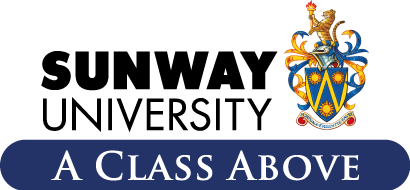Master of Finance vs MBA: Which is Better?

In today’s fast-paced economy, postgraduate degrees are increasingly becoming a key differentiator for professionals looking to enhance their career prospects.
For those with an interest in business, particularly finance, two prominent options stand out: Master of Finance and Master of Business Administration (MBA).
Both degrees provide a pathway to better job opportunities, higher salaries, and career advancement, but each one has unique advantages depending on your goals and field of interest.
This article examines the differences between these programmes to help you decide which path is best suited to you.
Career Prospects: Master of Finance vs MBA
Types of Jobs with a Master of Finance
A Master of Finance degree prepares students for specialised finance roles, including positions as financial analysts, portfolio managers, risk analysts, and investment bankers.
Master of Finance graduates often enter fields that require deep expertise in quantitative analysis, financial modelling, and market assessment. In particular, Master of Finance graduates are highly sought after by investment banks, financial institutions, corporate finance divisions, and consultancy firms.
These roles are crucial to organisations that prioritise data-driven decision-making and require advanced financial analysis skills.
Career Advancement Opportunities with an MBA
An MBA is broader in focus, equipping graduates with versatile skills applicable across various industries.
This degree prepares professionals for leadership and management positions such as management consultant, corporate strategist, and general manager.
MBA graduates are also well-suited for executive positions across industries like technology, healthcare, consumer goods, and even non-profit. As companies prioritise strategic thinking and leadership, MBAs can be invaluable assets, particularly for those interested in climbing the corporate ladder.
Career Advancement Opportunities with a Master of Finance
For those eyeing senior finance roles, a Master of Finance provides additional leverage.
By focusing on quantitative skills and financial theories, Master of Finance graduates are well-equipped for senior roles in asset management, risk assessment, and investment analysis.
This specialised training gives Master of Finance holders an edge when pursuing finance-focused leadership roles in areas such as risk management, corporate treasury, and financial planning, where technical expertise is critical.
Salary Comparison of Graduates
While master’s degrees offer higher earnings potential than bachelor’s degrees in general, there is no direct comparison between an MBA graduate and a Master of Finance graduate’s salaries as each qualification opens one up to different career opportunities.
Due to the highly specialised nature of a Master of Finance, graduates can transition more seamlessly into finance-specific roles.
On the other hand, MBA holders have a broader range of managerial and leadership opportunities across various sectors.
An MBA graduate can take on roles such as Business Development Manager, which fetches RM140,000 per annum, and Supply Chain Manager, which has an annual salary of RM164,000, according to the Michael Page Salary Guide 2024. One of the highest roles an MBA holder can progress to is Chief Executive Officer, which commands an average of RM720,000 per year.
On the other hand, Master of Finance graduates are primed to take on roles in investment banking, which can earn you anywhere from RM84,000 to over RM240,000 depending on your years of experience. Alternatively, they can advance in Portfolio and Fund Management, which can fetch annual salaries ranging from RM120,000 to RM211,000.
At the highest level, they can command an average yearly salary of RM500,000 as a Chief Financial Officer.

Curriculum Comparison: Subjects and Teaching Methods
Core Subjects in a Master of Finance
A Master of Finance programme covers finance-specific subjects such as corporate finance, investment analysis, financial markets, and quantitative finance.
At Sunway University Online, core subjects include Financial Management, which introduces corporate finance principles; Corporate Finance, which emphasises evaluating financial decisions; and Business Research Methods, where students learn to analyse and apply data in finance. This in-depth curriculum is ideal for those looking to deepen their expertise in specific finance areas.
Core Subjects in an MBA
An MBA programme’s curriculum is broader, with core subjects that cover various business functions like Strategic Management, Marketing, Operations, and Finance.
Sunway University Online’s MBA curriculum offers those subjects and more, including Strategy Frameworks and Sustainability, Finance and Accounting for Business Decisions, and Marketing Strategy and Technologies.
These subjects foster well-rounded business leaders, equipping graduates with the skills to make strategic decisions across different areas of a business. This comprehensive business curriculum makes the MBA ideal for those aspiring to become general managers or consultants.
Teaching Methods in a Master of Finance
Master of Finance programmes prioritise quantitative and analytical skills, incorporating tools and techniques essential for high-level financial analysis.
Courses often utilise case studies, financial modelling software, and simulations, allowing students to apply theoretical knowledge to real-world financial challenges.
This hands-on approach prepares students to excel in finance roles that demand analytical precision.
Teaching Methods in an MBA
MBA programmes often employ case studies, group projects, and presentations to cultivate leadership, problem-solving, and decision-making skills.
This interactive, experiential approach reflects the diverse skills needed for general management roles.
By simulating real-world scenarios, MBA programmes help students develop strategic thinking and interpersonal skills essential for business leadership.
Cost Analysis: Master of Finance vs MBA
Average Cost of a Master of Finance
The cost of a Master of Finance programme can vary significantly. For instance, Sunway University’s Master of Finance is priced at RM40,000, making it comparable to similar programmes offered by other Malaysian universities. In the US, tuition fees for Master of Finance programmes average US$11,500 per year at public institutions and US$20,000 per year at private schools, according to Forbes.
Average Cost of an MBA
An MBA programme generally involves a higher tuition fee due to its broader curriculum and slightly longer duration.
At Sunway University Online, an MBA is priced at RM47,000. In the US, the average cost of a Master in Business Administration is US$56,850 as of 2020, according to calculations by Education Data Initiative.
While the initial investment is substantial, the long-term earning potential for MBA graduates can offset these costs, particularly in high-paying sectors like consulting and technology.
Duration and Flexibility of Programmes
Completion Time for a Master of Finance
A typical Master of Finance programme can be completed within a year, though this can stretch to 2 years depending on the institution.
Due to its flexible, part-time study option where students can opt to take one subject per semester, Sunway University Online’s programme can be completed in 24 months.
Completion Time for an MBA
MBA programmes generally take longer to complete. Full-time programmes span about 1-2 years while part-time programmes offer flexible pacing, allowing students to complete it within 2-3 years based on their schedules.
For Sunway University Online’s MBA, students can take up to 26 months to complete the programme with flexible online study.
Fully Online and Part-Time Study at Sunway University Online
Sunway University Online boasts a flexible, 100% online structure across all its programmes, as they are designed for working professionals who need to balance studies with work and personal commitments.
Both its Master of Finance and MBA programmes have part-time study options in which students can take up to 24 and 26 months, respectively, to complete their studies.
There are also multiple intake points per year, allowing students to have greater control over their study schedules. Each study period lasts for 7 weeks, and students will take one subject at a time.
Being fully online, both programmes also enable students to access classes and assignments anywhere, anytime, and on any device.
Specialised Tracks in Finance and Business Administration
Specialisations within a Master of Finance
Master of Finance programmes offer specialisations in areas like investment analysis, risk management, corporate finance, and financial technology.
Similarly, Sunway University Online’s Master of Finance gives students the opportunity to delve into the following specialisations:
- Investments
- Financial Statement Analysis
- Global Financial Markets
- Financial Analytics & Technology
Students may also choose from one of the following electives:
- Managing Technology and Innovation
- Accounting and Finance for Decision Making
- Strategy Frameworks and Sustainability
Specialisations within an MBA
MBA programmes offer a wider variety of specialisations, including finance, marketing, operations, and entrepreneurship. These tracks allow students to tailor their education based on their own career goals and across multiple business disciplines.
Bottom Line
Choosing between a Master of Finance and an MBA ultimately depends on your career goals. If you’re targeting a specialised role in finance, with a focus on quantitative skills and financial analysis, a Master of Finance may be the ideal choice.

Take a closer look at the cost of our programmes by clicking this link. You'll find a detailed breakdown of the fees associated with each course, helping you make an informed decision about your educational investment.
For those seeking general business leadership positions or roles in multiple industries, an MBA’s broad curriculum and emphasis on management may be more suitable. Both programmes offer substantial career benefits, so consider your desired learning outcomes, professional aspirations, and preferred learning methods when deciding on the right path for you.
If you are ready to take the next step in your career without pausing your personal and professional life, Sunway University Online offers fully online MBA and Master of Finance programmes you can pursue part-time.
Get in touch with an Education Counsellor today for your free eligibility check for the MBA and Master of Finance.



